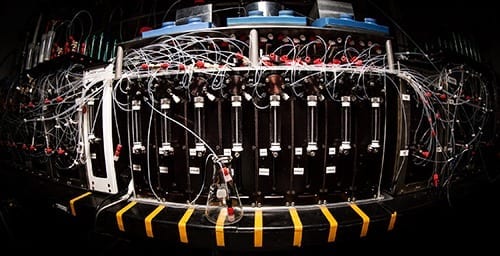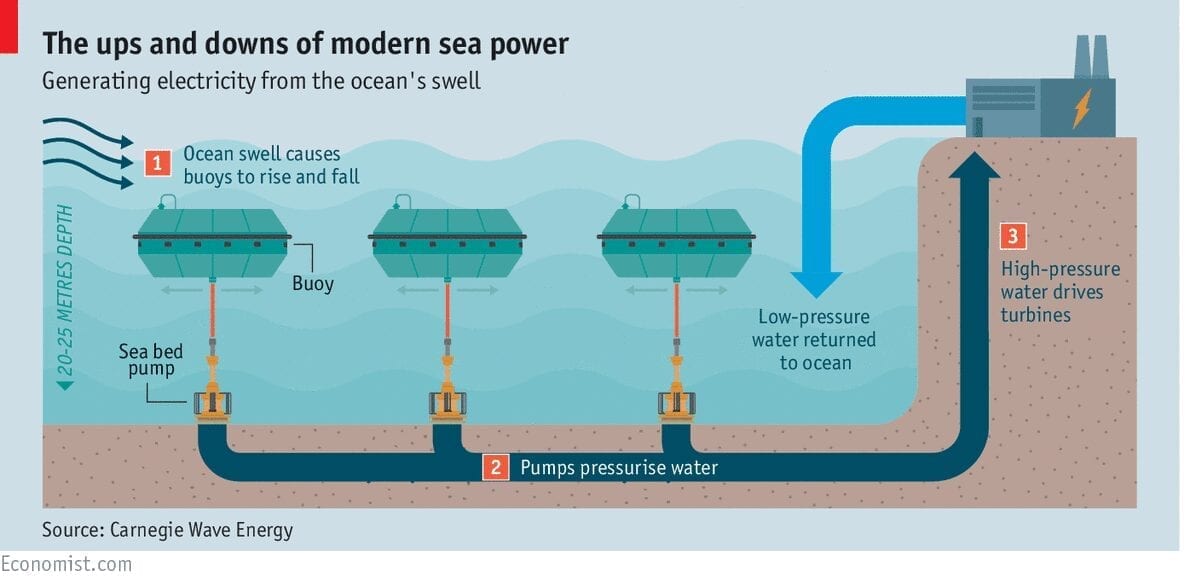
Photo by
L. Brian Stauffer
A new molecule-making machine could do for chemistry what 3-D printing did for engineering: Make it fast, flexible and accessible to anyone.
Chemists at the University of Illinois, led by chemistry professor and medical doctor Martin D. Burke, built the machine to assemble complex small molecules at the click of a mouse, like a 3-D printer at the molecular level. The automated process has the potential to greatly speed up and enable new drug development and other technologies that rely on small molecules.
“We wanted to take a very complex process, chemical synthesis, and make it simple,” said Burke, a Howard Hughes Medical Institute Early Career Scientist. “Simplicity enables automation, which, in turn, can broadly enable discovery and bring the substantial power of making molecules to nonspecialists.”
The researchers described the technology in a paper featured on the cover of the March 13 issue of Science.
“Small molecules” are a specific class of complex, compact chemical structures found throughout nature. They are very important in medicine – most medications available now are small molecules – as well as in biology as probes to uncover the inner workings of cells and tissues. Small molecules also are key elements in technologies like solar cells and LEDs.
However, small molecules are notoriously difficult to make in a lab. Traditionally, a highly trained chemist spends years trying to figure out how to make each one before its function can even be explored, a slowdown that hinders development of small-molecule-based medications and technologies.
“Up to now, the bottleneck has been synthesis,” Burke said. “There are many areas where progress is being slowed, and many molecules that pharmaceutical companies aren’t even working on, because the barrier to synthesis is so high.”
The main question that Burke’s group seeks to answer: How do you take something very complex and make it as simple as possible?
The group’s strategy has been to break down the complex molecules into smaller building blocks that can be easily assembled. The chemical building blocks all have the same connector piece and can be stitched together with one simple reaction, the way that a child’s interconnecting plastic blocks can have different shapes but all snap together. Many of the building blocks Burke’s lab has developed are available commercially.
Read more: Molecule-making machine simplifies complex chemistry
The Latest on: Molecule-making machine
[google_news title=”” keyword=”Molecule-making machine” num_posts=”10″ blurb_length=”0″ show_thumb=”left”]
via Google News
The Latest on: Molecule-making machine
- AI Supercharges Fentanyl Production And Distribution, Study Findson April 27, 2024 at 4:00 am
One need not be a world leader in AI-assisted pharmacology to start illicit drug production. You simply need to understand the key precursor chemicals, AI and synthesize.
- Zoogeochemists measure how animals change the chemistry of their environmentson April 26, 2024 at 5:52 pm
Ecologists are blazing trails in a new field they’ve dubbed zoogeochemistry, which explores how animals influence nutrient cycling and carbon entering and exiting their ecosystems. Through everyday ...
- Revolutionary AI device utilizes few-molecule reservoir computing for blood glucose predictionon April 26, 2024 at 10:15 am
A collaborative research team from NIMS and Tokyo University of Science has successfully developed a cutting-edge artificial intelligence (AI) device that executes brain-like information processing ...
- Yoneda Labs raises $4M from Khosla Ventures to build the ‘OpenAI for chemistry’on April 26, 2024 at 2:00 am
“Machine learning and generative AI models ... Whenever a chemist needs to create an organic small molecule, they put this into our model, and our model will give them the recipe for making it.” ...
- Chemistry Newson April 25, 2024 at 5:00 pm
Apr. 25, 2024 — Scientists have watched a molecule move across a graphite surface in unprecedented detail. It turns out this particular molecule moves like a Moon ... A Chemical Mystery Solved ...
- LittleBigPlanet Developer Working on New IPon April 23, 2024 at 3:19 pm
A recent job listing confirms that LittleBigPlanet and Dreams developer Media Molecule's next game will be based on a brand-new IP.
- Free tool uses machine learning to pick better molecules for testing new reactionson April 22, 2024 at 8:06 am
“Developing a web application is a great way to bring these ideas to a larger part of the community,” says Connor Coley, a computational chemist at the Massachusetts Institute of Technology. He has ...
- The Chemistry of Bread Makingon April 21, 2024 at 5:00 pm
The various modes of making bread have nainly for their object the production of spon-;iness or lightness, by which a lare quantity f air is retained in it, which gives to a loaf hat lightness and ...
- Making the step from chemistry to biology and backon April 19, 2024 at 4:00 pm
With that lab exercise, Mr. Burge demonstrated the mysterious gap between chemistry and biology ... of the shape of the largest molecular machines (Fig. 1). Figure 1: Electron tomography may ...
- A simple, inexpensive way to make carbon atoms bind togetheron April 6, 2024 at 3:37 am
The active ingredient in many drugs is what's known as a small molecule: bigger than water ... This method could benefit drug developers by making molecules cheaper and easier to produce at ...
via Bing News









